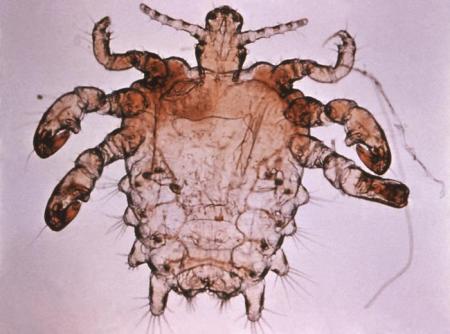
They’re not quite vampires, but they are a close second! Crabs, aka pubic lice, are tiny crab-like parasites that can often be seen with the naked eye (if you look closely), or by using a magnifying glass. Pubic lice are a light yellow or white in color and their eggs are white and can be found in small clumps at the hair root.
They attach themselves to the skin and hair in the pubic area, or anywhere a person has coarse hair, such as the armpits, eyelashes, and facial hair (beards). An important thing to note is that crabs are NOT the same thing as head lice. According to the American Sexual Health Association, there are an estimated 3 million cases of crabs every year in the US.
How do people get crabs + what are the symptoms?
Pubic lice are most commonly and easily transmitted through sexual contact with someone who has public lice. Sexual penetration does NOT need to occur, as it can spread when an infested area with coarse hair comes into close contact with another pubic/coarse hair area. They can also be spread by sharing bedding or linens with someone who has crabs. It is nearly impossible to get crabs from a toilet seat (they need to live near a warm body to survive). The most common symptom is intense itching in the genitals. Most people are able to diagnose themselves with pubic lice. However, you can also visit a clinic and have a health professional check for you.
What are the treatments? Is it curable?
YES! Over-the-counter lotion or mousse that kills head lice should also kill public lice. Treatment might need to be repeated 9-10 days after the first treatment to completely get rid of all of those crabs! You should also be sure to wash all bedding, towels, and clothes in HOT water and dry in a HOT dryer for at least 20 minutes and scrub your bathroom with bleach. Learn more about treatment here. Note: simply bathing and shaving will NOT eliminate public lice.
How can I best prevent getting/spreading public lice?
The best way to reduce your risk of pubic lice is having sex with the same partner who also only has sex with you. Also, if you or your partner has pubic lice, you should not have sexual contact with each other until treatment is fully complete. If you do contract pubic lice, you should also get checked for other STDs at a clinic near you.